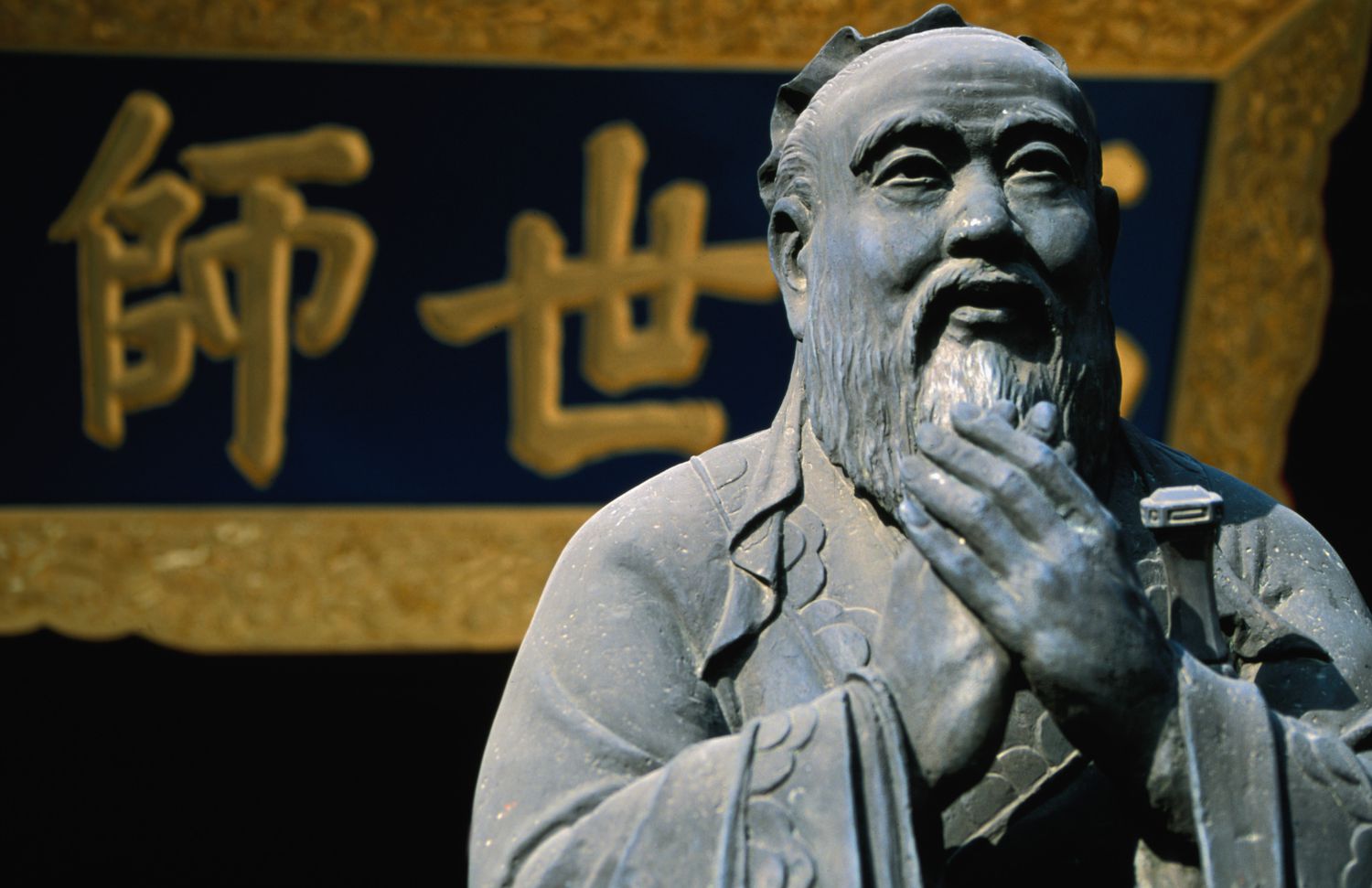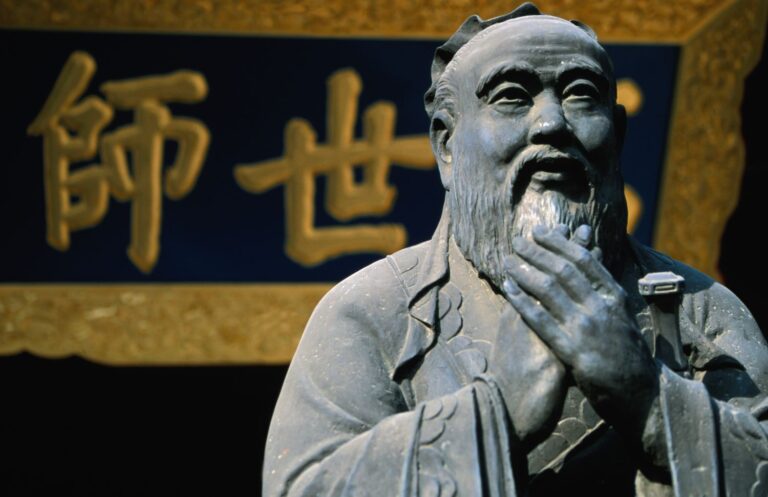Transcript
Confucius was born in China almost 2,500 years ago, and he is probably one of the most famous Chinese philosophers. His teachings are now referred to as Confucianism and are mostly recorded in the Analects. Unlike modern Western philosophy, Confucianism doesn’t focus on universal principles or logical reasoning. The Analects are more like a guidebook full of sayings, examples, etiquette, and ethical attitudes that aim to help individuals become cultivated gentlemen and, in turn, create a harmonious society.
That being said, there are a few key ethical ideas that keep popping up in the Analects. Probably the foremost concept is the attitude or virtue of Ren, which is a central trait that the cultivated person aims to have. The Analects don’t provide a universal definition of Ren, but they give examples of what it entails, such as treating everyone on the street like important guests, speaking with respect, and being loyal and honest when dealing with others. If we had to define it, we could say that Ren requires benevolence, unselfishness, or a kind of sympathetic consideration for other people.
Confucius also insisted on following Li, which means rituals or ritual propriety. Ancient Chinese rituals were extremely detailed and governed a wide range of matters, including what clothes to wear, how to mourn death, and how to interact with people of different classes in society. It seems that Confucius saw rituals as important because they helped people to develop and express virtues. For example, if I bump into you, good manners dictate that I say, “I’m sorry, are you okay?” By doing so, I’m expressing that I care about you, and it might help me develop my sense of care for you and make me a more caring person in general. Confucius also once said that Li is important because it is something that has Ren in itself. One reason for this might be that following rituals can help everyone maintain harmonious relations and avoid misunderstandings, which is something that is good in itself.
But what made Confucius really different from other teachers of his time was his idea that Li without Ren is pointless. For people who are not virtuous, what good is Li? In other words, ritual for the sake of ritual without proper intentions has no ethical value.
Another recurring idea is Yi, which is similar to righteousness. This requires public servants to be uncorrupted, for example, and it requires the gentleman to put righteousness before profit, even if it means going hungry or having no pillow to sleep on. Confucius himself was famously poor.
A fourth idea that’s worth mentioning is the concept of Shu, which is sort of like empathy and mercy. In relation to this concept, Confucius said, “Don’t do to others what you don’t desire.” This saying mirrors the Silver Rule in Western ethics and is one of the few times Confucius stated a universal ethical principle.
There are many other concepts that Confucius discusses, but philosophers these days generally agree that if we had to tie Confucius’s teachings together, we could broadly say that he advocated a kind of sympathetic respect for other people, expressed and constituted through traditional rituals and good manners, and which takes priority over personal gain and profit.
However, when we try to apply his philosophy to modern life, it becomes challenging. Confucius never came up with an abstract theory of ethics like utilitarianism or social contract theory. He mostly gave direct answers to specific ethical questions in specific contexts that existed over 2,000 years ago. This makes it difficult to strictly apply his entire set of teachings to modern life. Perhaps when applying Confucianism to a modern context, it’s better to take inspiration from the spirit of his sayings rather than trying to strictly follow all the ancient rituals and practices.
Examples of Confucian concepts:
Ren (benevolence, unselfishness)
Li (ritual propriety)
Yi (righteousness)
Shu (empathy, mercy)


